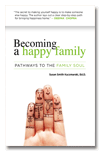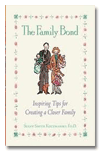Why is apologizing SO hard to do? What is the best way to apologize and what is the worst?
Why is apologizing so hard to do?
When the wounds are deep and the hurt has been going on for a long time, just saying, “I am sorry” may not be sufficient. First, recognize what caused the rift or problem. Maybe your adult son or daughter crossed the line, or maybe you did. In either case, it was terribly wounding albeit it never was intended to be so. To make matters more intense, your older child’s explosive behavior might indicate some type of physical or mental illness, especially if there is unexplainable acting out. Or other wounds might be intentional, as in the case of an in-law clandestinely “stealing” one’s son away, a problem shared by one interviewee in my research. Other times, you can’t figure out what went wrong and, over time, it just seems to get messier and more problematic.
The Best Ways to Apologize:
So what can you do during extremely challenging family times? Take it slowly. Try these ten ways to expand your repertoire of choices to reconcile both the small and deep wounds.
- Get rid of self-righteousness. Stop framing the situation in terms of “who’s right and who’s wrong.”
- Instead of denying feelings, put them into words. “You must feel really upset and embarrassed about what happened at the party. I am slowly seeing what a mess I made for you by my actions. I drank too much and should not have put the moves on your boss. It was stupid of me.”
- Actively listen! Often we simply fail to listen carefully to what another person is telling us. Focus on deeply and selflessly understanding your family member’s point of view.
- Use lots of humility. Be willing to admit that it was your mistake and perhaps a stupid one at that! We all make mistakes, but we all don’t admit that we do. Model how to be humble on the family front. Families should talk about problems and be bluntly honest about their own thoughts and feelings. Get them out.
- Put “I’m sorry” in writing. A letter may work better than verbal conversation, especially if the problem is a serious or deep one. Words on paper can be read over and over so your apology can be absorbed.
- Brainstorm to come up with an action plan. “Let’s try to come up with some ideas as a family for how to prevent this from happening again.” List all ideas and possible solutions without evaluating to rectify the situation or problem.
- Step back! Your adult child or family member may not be ready to resolve the issue. Trust that time will work for you. Waiting to resolve the problem may be the very best tactic. Avoid stepping in until the time is right and positive action steps can be more effective. Retreat does not mean you are giving up; rather, you are looking for that opportune moment to positively engage and make peace.
- Get some outside help. Ask another family member, friend or counselor to intervene and shed some light on the rift or problem. Realize, however, that this may cause your enraged family member to roar with anger, but in some cases an “outsider” can be an effective peacemaker.
- Hang in there. Keep trying. It may take a lot more conversations and letters to turn around the situation. Don’t give up. Days or months or perhaps years may resolve the rift. Maybe an unexpected twist will work to your advantage. We all become more forgiving with time and age.
- Put it on the back burner! If there is no resolution in sight, give yourself permission to focus on yourself. Enjoy life! Take time to smell the peonies in your back yard or take a trip with your closest friend.

 Dr. Susan Smith Kuczmarski has taught at 8 universities, now at Northwestern University and Loyola University in Chicago. She is an award-winning author of 6 books, 3 on families and 3 on leadership, including her newest, Becoming A Happy Family: Pathways to the Family Soul (2015), and her best-selling, The Sacred Flight of the Teenager: A Parent’s Guide to Stepping Back and Letting Go, which was released (2019) in Egypt in Arabic. Trained as a cultural anthropologist, she has researched extensively how children learn social skills and teens become leaders. A frequent radio and television guest, she has appeared on "The Today Show" and speaks regularly to parents and educators. Listed in Who's Who in the World for 12 years and an International Fellow of Columbia University, her 35 years of college teaching and research have made her an expert on issues devoted to the contemporary family.
Dr. Susan Smith Kuczmarski has taught at 8 universities, now at Northwestern University and Loyola University in Chicago. She is an award-winning author of 6 books, 3 on families and 3 on leadership, including her newest, Becoming A Happy Family: Pathways to the Family Soul (2015), and her best-selling, The Sacred Flight of the Teenager: A Parent’s Guide to Stepping Back and Letting Go, which was released (2019) in Egypt in Arabic. Trained as a cultural anthropologist, she has researched extensively how children learn social skills and teens become leaders. A frequent radio and television guest, she has appeared on "The Today Show" and speaks regularly to parents and educators. Listed in Who's Who in the World for 12 years and an International Fellow of Columbia University, her 35 years of college teaching and research have made her an expert on issues devoted to the contemporary family.
















